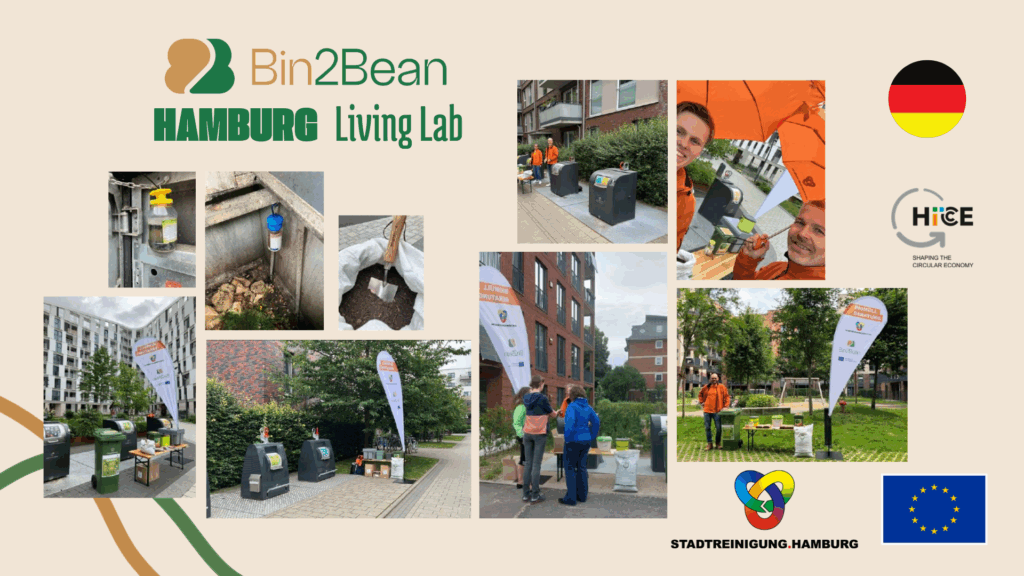The Hamburg Living Lab, part of the Bin2Bean project, focused on improving the quality of source-separated organic waste, a key priority for the city. In Hamburg, the separate collection of organic waste and paper has been mandatory since 2011. Although this practice has existed since 1994, involving around one million households and 158,000 bins of various sizes, a 2024 residual waste analysis revealed that approximately 32% of compostable organic material still ends up in residual waste. Overall, more than 40% of non-separated waste is organic.
A widespread issue concerns “mis-sorting errors,” such as the presence of plastics and other impurities in organic waste. This problem is particularly critical in large underground refuse systems (UFS) used by many residents in apartment buildings, where social control is limited. The project’s vision is to make correct organic waste separation a natural habit for all citizens, thereby creating high-quality compost for a more sustainable city. The primary goal is to achieve “clean” organic waste to be sent to the Kompostwerk Bützberg facility, which processed about 50,000 tonnes in 2023, converting 76% of it into compost for agriculture and 11% of it into compost for private households. Furthermore, a part of it was converted into biomethane, generating yearly approximately 9,500 MWh of energy.
The Living Lab concentrated its efforts on two organic waste collection tours (large UFS bins), covering 61 locations and involving over 4,000 users (around 400 households within the collection tours). The measures were developed following preliminary surveys, interviews, research activities, and workshops.
Strategies and Possible Solutions
The discussed solutions during last consortium meeting focused on several main areas:
- Hygiene and Facilitation:
SRH bio-bags (paper bags for organic waste distributed by Stadtreinigung Hamburg), were distributed free of charge through installed dispensers. These help prevent insect problems, ensure cleaner kitchens, and lead to tidier waste disposal. - Awareness and Recognition:
Flyers and news spread to the citizens can help raise awareness of the importance of proper waste separation and the value of the final product. The aim is to help citizens understand why clean organic waste is essential and to present compost as a tangible, high-quality product of the circular economy. - Monitoring and Quality Control:
An innovative solution involves monitoring the quality of organic waste before emptying the container. Based on this assessment, a decision is made on whether to proceed with collection. If the quality is unacceptable, the customer receives a documented notice, and any additional collection is charged as residual waste.

Implementation and Initial Results
Implementation included improved information campaigns and on-site engagement events. These took place across 26 joint collection points, offering a real insight into the contents of the bins. The activities required over 300 hours of on-site work, reaching more than 450 users. During these events, in addition to the bio-bags, over 250 compost samples, insect repellents, and information leaflets were distributed.
The ultimate goal remains the reduction of impurities to maximize the production of clean compost. Although the project is still in the monitoring phase, the vision is clear: Hamburg aspires to a culture of responsibility and sustainability, where every household correctly separates organic waste to ensure better resource use and a cleaner environment.

